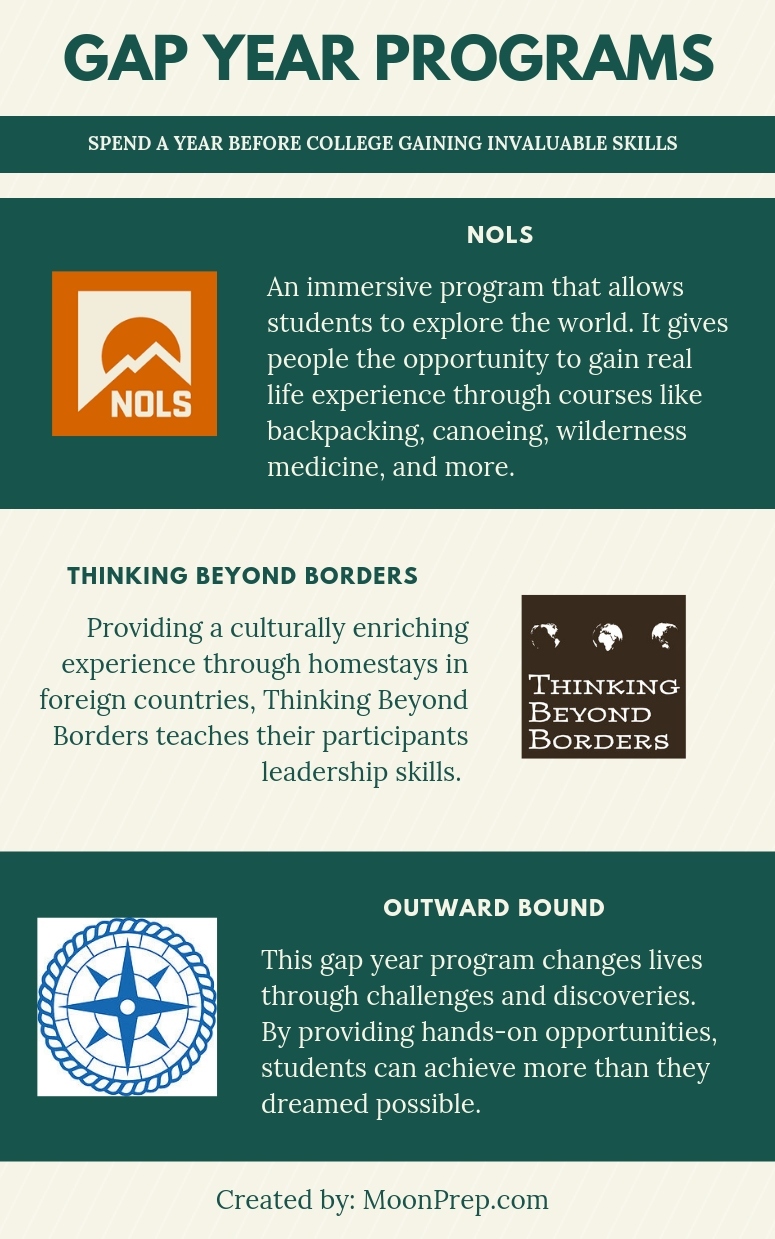BY KRISTEN MOON
Traditionally, students have transitioned directly from high school into their first year of undergraduate. While some students follow this path and excel, other students might have trouble adjusting. Moving to a new environment, taking classes, and studying for exams – all without having their parents monitoring their behavior and grades. Some students are just not ready to go to jump right into college, and that is okay.
Many are now taking a gap year between high school and college to gain life experiences to better prepare for university. Students can use the gap years to travel, volunteer, or further their knowledge in a particular subject.
Gap years have started to gain in popularity within the last few decades. Malia Obama, Prince William, and Prince Harry all took a year off before attending college. Luckily, you don’t have to be a member of the elite to take a gap year. More students are starting to take advantage of gap years as universities are allowing students to defer their admission for one year.
Schools like Harvard University, Princeton, and Middlebury College often look positively on gap years and frequently give students the opportunity to defer enrollment for one year to pursue this opportunity. One option is to attend a gap year program, like the ones listed below, that give students a structured and transformational experience.
NOLS is an immersive gap year program that allows students to explore every corner of the world, from India to Alaska to Mexico. NOLS teaches lessons in leadership and confidence, with the chance to earn college credit through courses like backpacking, canoeing, whitewater kayaking, wilderness medicine, and more. The non-profit outdoor education school aims to teach environmental ethics, outdoor technical skills, and risk management and judgment. Scholarships make this gap year program possible for every student.
Learn more: www.nols.edu
As a global leader in gap year programs, Thinking Beyond Borders is an expert in offering culturally enriching experiences. They provide students with the opportunity for cultural immersion through homestays in foreign countries. If one of your main determinants to doing a gap year is the cost, Thinking Beyond Borders (TBB) gives students options. They offer both scholarships and assistance in helping students raise funds for their tuition. TBB helps students build a crowdfunding campaign through Generosity.com, which has helped students raise anywhere from a few thousand to twenty thousand dollars.
Learn more: https://thinkingbeyondborders.org/
Outward Bound aims to change lives through challenges and discoveries. Participants in the program have the chance to explore the wilderness or cities through 30 to 85-day expeditions that give students real-world, hands-on experiences. Many people have found that Outward Bound pushes them both mentally and physically, allowing them to achieve things they never thought possible before joining the program. Students can also receive between 3 and 18 credits, depending on the length of the expedition.
Learn more: https://www.outwardbound.org/
Completing any of these gap year programs is an excellent way for your college application to stand apart from others—after all, not many college applicants can say that they have completed an 80-day expedition into the wild or lived with a family in a foreign country. A gap year can help students adequately prepare for college by increasing their confidence, rediscovering a love for learning, and gaining invaluable life lessons and skills.
Author: Kristen Moon
Bio: I am an independent college counselor and the founder and CEO of Moon Prep. Moon Prep is comprised of a team of experienced college counselors and financial aid coaches that guide students through the entire application process, providing one-on-one customized attention. My focus is to help students create an application that sets them apart from the pack, conveys what they have to offer the college, and why they are a great fit. I studied engineering at Stony Brook University before earning an M.B.A. from Emory University. I work with students around the globe and partner with them to make their dream college a reality. Ninety-two percent of my students are accepted into one or more of their top three universities.





